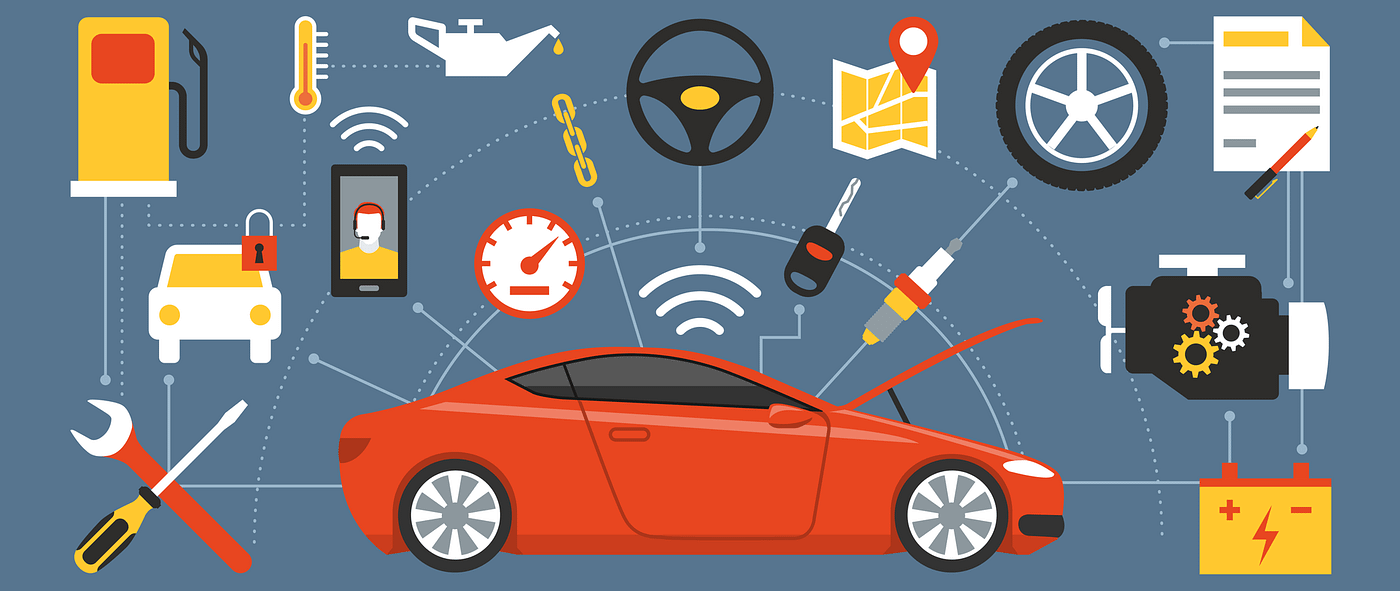All Categories
Featured

Modern automobiles are geared up with sophisticated engine control devices (ECUs) that keep track of and control numerous parts of the engine. Engine diagnostics is an effective tool that allows mechanics to recognize problems early, helping avoid significant repair services and making sure the long life of your vehicle.
- What Are Engine Diagnostics? Engine diagnostics describe the procedure of utilizing specialized tools to analyze the efficiency and keep track of of a car's engine. The diagnostic system within a car collects information from sensing units situated throughout the engine and other essential elements, such as the transmission, fuel, and exhaust system. This data is after that refined by the vehicle's onboard computer, which can detect breakdowns or abnormalities.
Technicians can link an analysis device, generally an OBD-II (Onboard Diagnostics) scanner, to your auto's ECU to obtain mistake codes and real-time information. These codes show details areas where the engine or other elements may be experiencing issues, also before advising lights or performance adjustments are recognizable to the motorist.
- Recognizing Troubles Early. One of one of the most considerable benefits of engine diagnostics is the capacity to recognize troubles early, often before they intensify into major problems. Little problems, such as a misfiring ignition system, a faulty sensing unit, or an ineffective fuel injector, can slowly aggravate if left uncontrolled. However, with early discovery through engine diagnostics, mechanics can resolve these small concerns prior to they cause substantial damages.
For instance, if a sensor detects that the engine is running abundant or too lean (too much or also little fuel), this might bring about increased wear on engine parts or inadequate gas efficiency. By diagnosing this early, the mechanic can readjust the air-fuel mix, protecting against costly repair services later on.
- Stopping Engine Damages. With time, troubles with the engine's elements, such as the timing belt, exhaust system, or cooling down system, can cause serious damage if not addressed quickly. For example, an overheating engine because of a failing radiator or water pump can create substantial interior damages, such as distorted cylinder heads or a blown gasket. Identifying issues early via the engine diagnostics system can avoid these circumstances from progressing to catastrophic engine failure.
The diagnostic system can additionally find problems with the exhaust system, such as a malfunctioning catalytic converter, which might cause inadequate engine performance and eventual engine damages if not fixed.
- Minimizing Repair Work Costs. By recognizing and attending to small issues early, engine diagnostics can conserve you substantial money on repair services. When problems are captured early, repair work tend to be less complex and a lot more budget friendly. Changing a defective oxygen sensing unit or cleaning a clogged up gas injector is fairly cost-effective compared to replacing an entire engine due to forget.
In addition, engine diagnostics help protect against unnecessary fixings by determining the exact reason for the trouble. Without diagnostics, auto mechanics may need to do comprehensive screening and trial-and-error techniques to detect the issue, which can increase both time and price.

- Improving Automobile Performance and Effectiveness. Another benefit of normal engine diagnostics is that it helps boost your automobile's efficiency and gas effectiveness. If the engine is running efficiently and all systems are functioning optimally, you will certainly experience far better velocity, smoother driving, and boosted gas economic climate. Engine diagnostics can reveal issues such as a clogged air filter, a malfunctioning mass airflow sensor, or a worn-out trigger plug that could impede your automobile's performance.
For instance, a malfunctioning thermostat could cause your engine to overheat or not reach its optimal operating temperature level. A diagnostic check will certainly help determine this issue early, preventing getting too hot and guaranteeing your automobile operates at its best.
- Why Normal Diagnostics Matter. While several vehicle drivers might believe of engine diagnostics as something to do just when the "check engine" light shows up, normal diagnostics must belong to regular vehicle upkeep. Several car service center and dealerships offer analysis checks as part of an annual service or tune-up. Routine diagnostic scans assist capture problems prior to they trigger visible symptoms or break downs, ultimately protecting against significant fixings later on.
It is also worth noting that if you're preparing to sell or trade-in your automobile, having a recent engine analysis report can be beneficial. Possible purchasers or dealers might be more likely to supply a higher trade-in value or acquisition rate if they recognize the vehicle has been well-kept and cost-free of major engine concerns.
- Conclusion. Engine diagnostics play a vital duty in keeping your lorry running efficiently and avoiding expensive repair services. By identifying concerns early, stopping engine damages, lowering fixing expenses, and enhancing efficiency, engine diagnostics guarantee your car remains reputable for many years ahead. Normal analysis checks as component of your automobile's routine maintenance will certainly assist you capture tiny issues before they become significant repairs, providing you comfort when driving and protecting your investment.
Latest Posts
Uncover the Best Auto Repair Deals in Montclare, Chicago
Published May 29, 25
1 min read
Explore Brake Repair & More: Complete Services Guide from Montclare Auto Repair
Published May 24, 25
1 min read
Explore Exclusive Auto Repair Offers in Chicago at Montclare Auto Repair
Published May 22, 25
1 min read
More
Latest Posts
Uncover the Best Auto Repair Deals in Montclare, Chicago
Published May 29, 25
1 min read
Explore Brake Repair & More: Complete Services Guide from Montclare Auto Repair
Published May 24, 25
1 min read
Explore Exclusive Auto Repair Offers in Chicago at Montclare Auto Repair
Published May 22, 25
1 min read